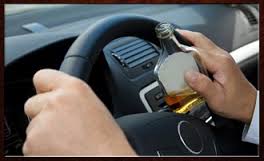Driving While Intoxicated(DWI) In Houston
So, You’re Stopped for Driving While Intoxicated. What do you do?
First, and foremost, act politely and with respect toward the officer. Keep in mind that officers must take care for their own safety during a traffic stop, and it is important that the officer understand that you are not a threat to their safety.
Harris County Driving While Intoxicated, Activate your emergency flashers when you notice the officer wants to pull you over. Pull off the roadway safely.
Harris County Driving While Intoxicated
Locate your driver’s license and proof of insurance and then keep your hands on the steering wheel. Answer the officer’s questions clearly and to the point. Don’t argue and don’t explain. If you can get by with just a ticket, that’s the best of the worst alternatives. In Texas, you must always be able to show proof of financial responsibility (liability insurance, generally) when you are operating a motor vehicle.
When you are stopped by a law enforcement officer and they ask you whether you’ve been “drinking,” and then they ask you to step out of your vehicle, the Harris County Driving While Intoxicated The officer has already stopped you for another reason – speeding, unsafe lane change, “failure to maintain single lane,” or some other “traffic violation.” The officer will then likely note in his report that you “fumbled” for your license or insurance card, that your eyes were “bloodshot” or “glassy,” and that he smelled the “odor of an alcoholic beverage.” Once the officer forms these opinions, you are asked to exit your vehicle AND THE INVESTIGATION OF DRIVING WHILE INTOXICATED HAS COMMENCED.
In Texas, the officer only needs a “reasonable suspicion” to stop you for a violation of the traffic laws. From there, it is a small step to the investigation of driving while intoxicated.
You need to protect yourself at this point, and the only thing that can protect your interest is for you to decide to remain silent. Do not volunteer any information. Remain polite and do not argue.
If the officer asks if you’ve been drinking, and then asks you to get out of your vehicle, you are more than likely going to jail. Everything that happens after you get out of your vehicle is designed to bolster the officer’s opinion that you are intoxicated and to provide evidence to support the criminal charge against you.
The best advice I can give you when you are stopped by a law enforcement officer and asked to take a breath test or a field sobriety test is this: just say “no, thank you, officer.”
While it may be intimidating, and while you may have your license suspended, and while the officer may try to tell you that if you “pass” these tests he will “let you go,” you should NOT participate in any of the field sobriety tests or consent to a breath or blood test. The chances of you passing the field sobriety tests are low. Remember – the defense of your DWI case starts when you’re asked to get out of your vehicle. If you GIVE the officer the evidence against you, you are many times more likely to be convicted of DWI. Just say “no, thank you, officer.”
Texas has an “administrative license revocation” procedure administered by the Texas Department of Public Safety, and you may have your license suspended, administratively, for your refusal to take the breath test. Still, that is surely preferable to being convicted for driving while intoxicated, which in Texas is a Class B misdemeanor for the first offense. And, it is possible to defend against the Texas Department of Public Safety Administrative License Revocation by showing that the officer did not have “reasonable suspicion” to stop you or that he did not have probably cause to ask you to take the breath test.
The officer will likely ask you to take a number of field sobriety tests (and those are discussed elsewhere on this site). You should politely decline.
You have a right to decline to take these tests and you should exercise that right. Unlike refusing a breath test, the Texas Department of Public Safety cannot move to administratively suspend your license if you refuse to participate in these field tests. Remember, once the officer has asked if you’ve been drinking and asked you to step out of the vehicle, you are likely going to jail, anyway. Just say “no, thank you, officer,” when asked to perform any of these tests.
The best way to defend against the results of the Standard Field Sobriety Tests and the breath test is for the accused driver to say “no, thank you, officer,” when they are asked to take those tests. (In fact, I’ve devoted an entire website of information to a discussion of defending DWI cases.
If there are no results for the officer to point to, then the jury will be left with less evidence upon which to base a possible “guilty” verdict and you can defend yourself more effectively against an unfair and unfounded charge of driving while intoxicated.
In other words, be polite and be patient. Keep in mind that “you can beat the rap, but you can’t beat the ride.” The number of people who “talk their way out” of a DWI arrest, or who pass the Standard Field Sobriety Tests, is very low. More than likely, you will NOT pass those tests, even if you’re not “driving while intoxicated.”
You can decide to “take your chances.” But, if you want the best chance of clearing your name of a DWI charge, just say “no, thank you, officer.”

